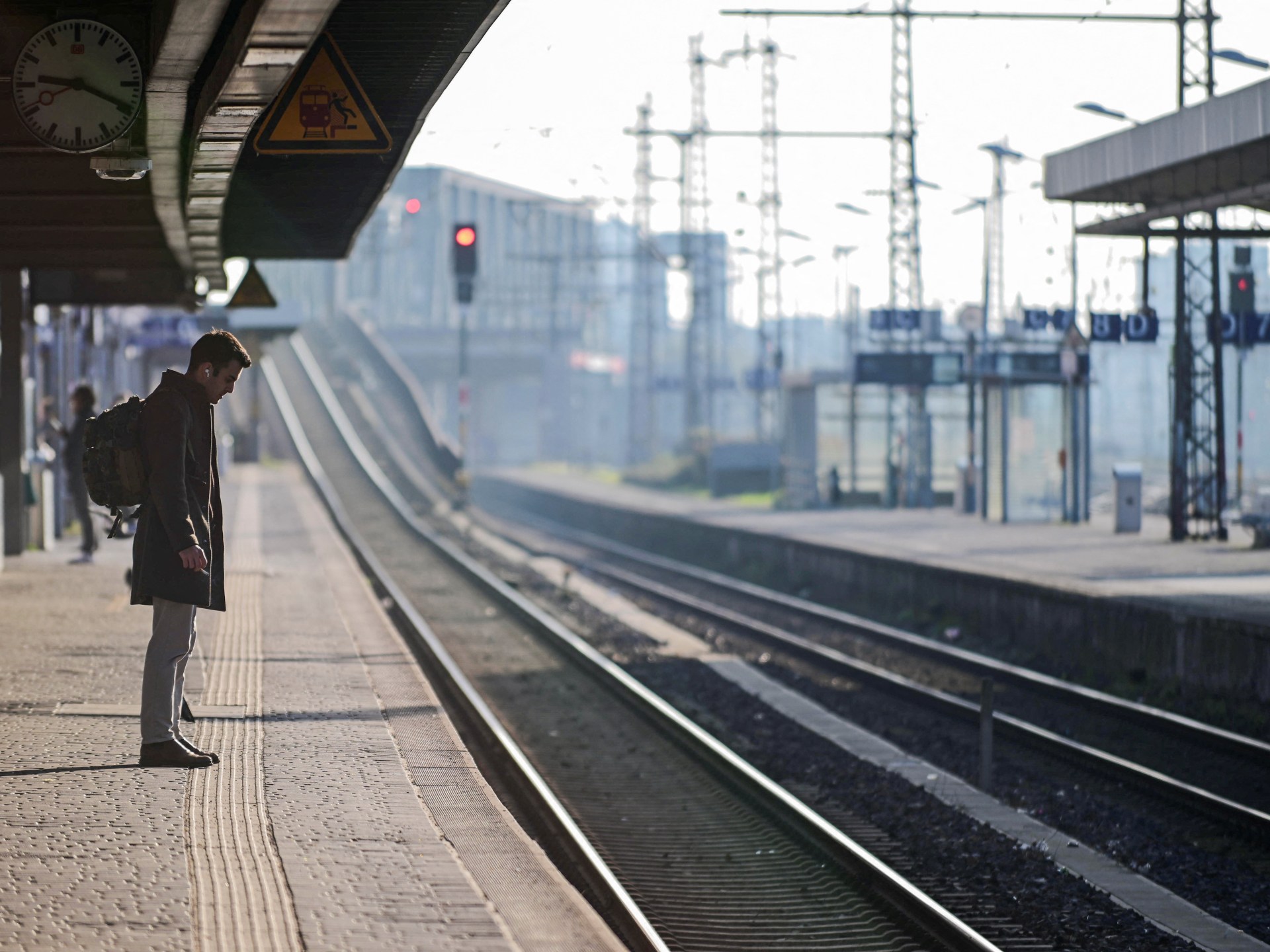Airport workers and train drivers take action to demand more pay to offset soaring inflation in the country.
Massive industrial action has paralysed air and rail travel across Germany as striking workers walked off the job to demand better pay to cope with the rising cost of living.
Thursday’s walkouts by the train drivers coincided with a strike by ground staff at national airline Lufthansa that led to mass flight cancellations at Germany’s busiest airports, including main hub Frankfurt.
The rail strike is due to last until Friday, Germany’s train union head Claus Weselsky said. “With this, we begin a so-called strike wave,” he told reporters.
Reporting from an empty Berlin Central Station, Al Jazeera’s Dominic Kane said there were no subregional trains moving at all, with only a few cross-country ones still active.
“It’s a similar picture right around the country,” Kane said.
Overall, about 80 percent of all long-distance trains, as well as regional and commuter trains in the country, were cancelled, leading to traffic jams in the streets and employees struggling to arrive on time for work.
The simultaneous action is the latest in a recent series of strikes hitting Germany’s travel sector in the past year, a result of high inflation and worker shortages.
It comes as the economic institute DIW Berlin warned that the German economy was not picking up as quickly as expected, forecasting a recession at the start of the year.
Gross domestic product (GDP) is expected to contract by 0.1 percent in the first quarter, according to DIW, after the economy shrank by 0.3 percent in the final three months of 2023. A technical recession is commonly defined as back-to-back quarters of contracting GDP.
The German train drivers’ union (GDL) demands that national train operator Deutsche Bahn reduce workers’ weekly hours from 38 to 35 hours at full pay to help offset lofty inflation and staff shortages.
The action comes after weeks-long talks between the two parties broke down last week. An earlier strike in late January, one of the longest in the state-owned company’s 30-year history, ended prematurely as an economic slowdown led to pressure on GDL to return to the negotiating table.
Meanwhile, Lufthansa is also locked in disputes with worker’s union Verdi over pay. The union is demanding a 12.5 percent increase in pay over a year for the airline’s staff, as well as a one-off 3,000 euros ($3,268) bonus.
Frankfurt airport, Germany’s busiest, was forced to cancel scheduled departures due to the strike, which will last until Saturday morning.
“Fraport is asking all passengers starting their journey in Frankfurt not to come to the airport on March 7 and to contact their airline,” the airport’s operator said in a statement on Wednesday.
The ADV airport association warned that strikes in the aviation sector, which also took place in Hamburg and Duesseldorf, were damaging Germany’s reputation as a centre for business and tourism.




